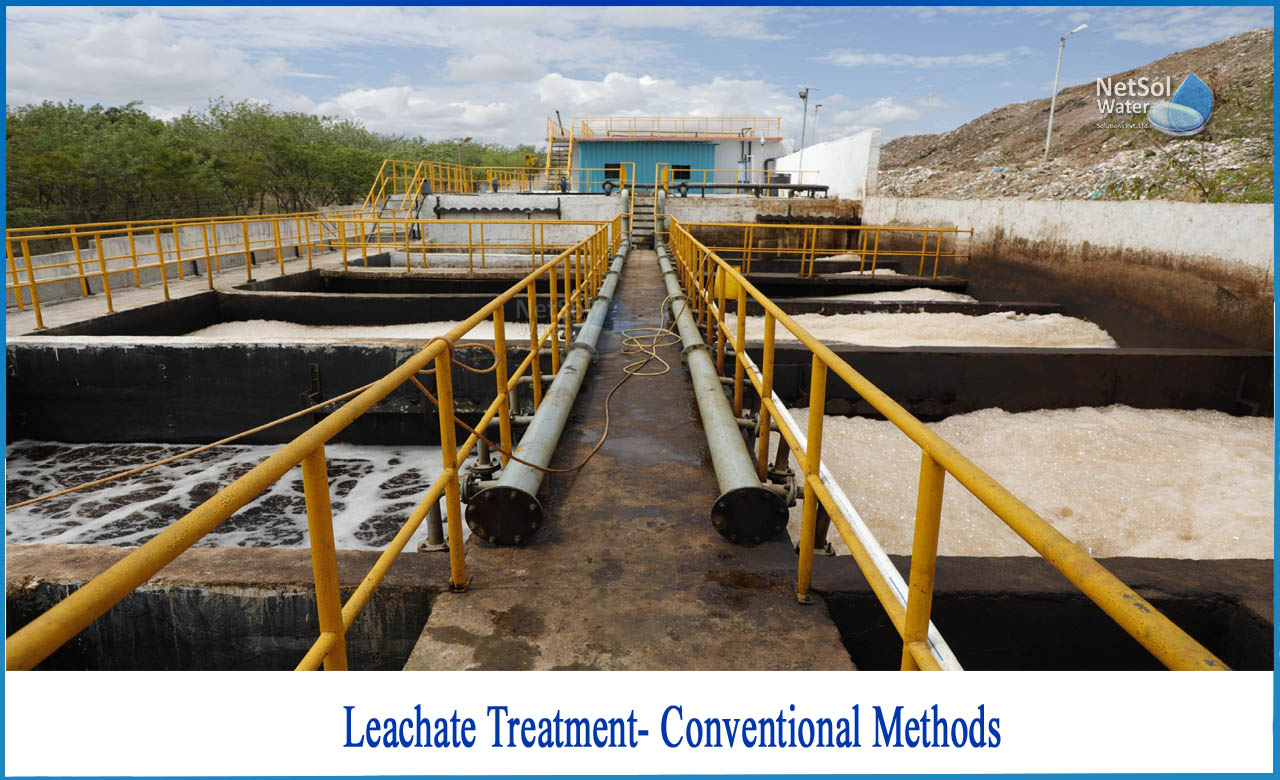What are leachate treatment Conventional methods?
The main objective of the leachate treatment is the elimination of organic matter and ammonia nitrogen and suspended solids as well as other toxic compounds, as a fundamental requirement to comply with the legal criteria for the discharge of leachate into the sanitation network for its final treatment and discharge, or directly to a natural aquatic body.
Leachate treatments are generally classified into:
I. Leachate transfer,
II. Biological treatments,
III. Physical-chemical treatments.
1: Leachate transfer
Transferring leachate entails regulating, diverting, or evaporating it.
Evaporation of leachate
Evaporation is a separation process in which raw leachate is separated into steam and residues, which include the whole pollutant load of the leachate and must be properly handled.
Combination treatment with municipal wastewater
It entails diverting and pumping the leachate to the sanitary network for treatment at an urban wastewater treatment plant (WWTP).
Recycling of leachate
It entails diverting and pumping the leachate back into the waste heap. This is the cheapest choice since it only requires the installation of the pumping system and has low maintenance and operational costs.
2: Biological treatment
Biological therapies are well-established, dependable, straightforward, and cost-effective techniques. The biological treatment is commonly employed with young leachates to remove large loads of biodegradable organic components.
SBRs are suited for nitrification-denitrification processes because they allow for a simultaneous operating regime of organic matter removal and ammonia nitrogen elimination.
Filters for trickling
These filters are especially interesting in the treatment of leachates because they allow for the reduction of ammonia nitrogen and the filter material is relatively inexpensive.
Moving bed bioreactor (MBBR)
The MBBR method is based on the employment of porous polymeric material carriers that float in the reaction tank where active biomass develops and is attached to their surface, forming a biofilm. Currently, granular activated carbon is being used as a 'carrier.'
The primary benefits of MBBR systems are increased biomass concentrations, no long sludge settling times, low susceptibility to hazardous chemicals, and simultaneous removal of biodegradable organic compounds and ammonia nitrogen. The use of MBBR systems provide for an efficient balance of adsorption and biodegradation processes.
3: Physical-chemical therapies
Total suspended solids, colloidal particles, floating material, colour, odour, hazardous chemicals, heavy metals, and refractory organic compounds are all reduced during the physical-chemical treatment of leachates. These techniques are employed as pre-treatment before biological treatments or as final polishing in the leachate treatment train. Specific methods can also be used to remove a specific pollutant from a particular leachate.
Coagulation–flocculation
The procedure involves the formation of aggregates by the addition of a coagulant, which destabilizes the loads of suspended particles and organic matter that they carry, as well as embedding additional contaminants in the aggregate structure. This organic matter contains resistant organic chemicals, which are eliminated by this procedure.
These aggregates are then mixed with a flocculant, which causes the aggregates to clump together and produce flocs that can be removed from the effluent using clarity processes.
Clarification via Flotation
Flotation is widely used as a clarifying and separation process, focusing on the removal of suspended particles, colloids, ions, macromolecules, microbes, and fibres, and it may extract up to 60% of refractory organic compounds under ideal working conditions.
Dissolved air flotation, or DAF, is one of the most efficient flotation methods in terms of removal performance and solids separation efficacy.
Adsorption
Pollutants are adsorbing (physically binding) to an activated carbon matrix. Activated carbon can be put as a powder (PAC) or as a column. This procedure achieves larger COD reductions than chemical methods, but it has the drawback of requiring the activated carbon to be replenished on regular basis. It is frequently used as a pre-treatment before biological leachate treatment or to assure a final polish by eliminating heavy metals and stubborn organic contaminants.
Advanced oxidation
Oxidation is a technique used to remove refractory organic components from leachates. It is used in the final effluent as both a pre-treatment and a polishing procedure.
There is growing interest in advanced oxidation processes (AOP) that, when applied to mature leachates, can:
a) Oxidize organic substances to carbon dioxide and water (mineralization process);
b) Increase the biodegradability of recalcitrant organic compounds to optimize subsequent biological treatment.
What can Netsol Water offer?
Netsol Water is committed to providing our valued customers with hands-on service, expert counselling, and training. Every environmental problem and its management have a solution in us.
Netsol Water is Greater Noida-based leading water & wastewater treatment plant manufacturer. We are industry's most demanding company based on client review and work quality. We are known as best commercial RO plant manufacturers, industrial RO plant manufacturer, sewage treatment plant manufacturer, Water Softener Plant Manufacturers and effluent treatment plant manufacturers. Apart from this 24x7 customer support is our USP. Call on +91-9650608473, or write us at enquiry@netsolwater.com for any support, inquiry or product-purchase related query.



